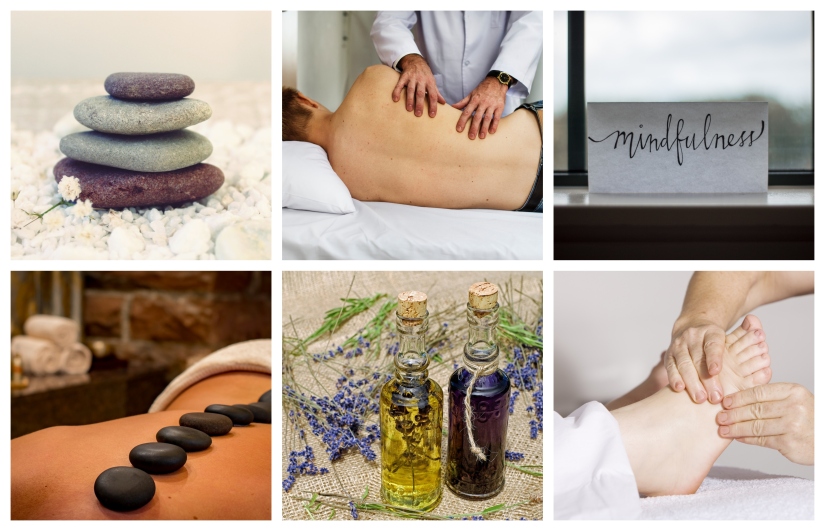In 2002, the World Health Organisation (WHO) predicted that by 2020, two thirds of all disease worldwide would be the result of chronic diseases, most of them strongly associated with diet [1].
Were they right?
It’s looking that way. According to the latest Lancet Global Burden of Disease study, sixty percent of the global burden of disease in 2015 was due to chronic conditions, also known as non-communicable diseases (NCDs) [2].
To a certain extent, these numbers are the inevitable result of an ageing population. But as many as 15 million premature deaths in 2015 were attributed to NCDs, representing 27% of total deaths that year [3]. Obesity, a known risk factor for a number of chronic diseases, including Type 2 Diabetes, Cardiovascular Disease and some cancers, has tripled since 1975. Type 2 Diabetes, traditionally seen in adulthood, is increasingly being diagnosed in children and young adults. And it’s not just physical health either. WHO has reported that disability associated with mental health is on the rise, estimating that by 2020, should current trends continue, depression will be second only to heart disease in its global disease burden [5].

The Problem
Attempts to tackle these problems at a public level are rarely enough. Nutrition campaigns are often tainted or undermined by the food industry and its pervasive media presence. Besides, healthy public policy is only one aspect of health promotion. The rest centres on the individual, their immediate environment, and available local health services.
So where do we go from here?
The problem with tackling lifestyle related disease is that there simply isn’t always the time and resource to get to the bottom of the issue. Too often, the issue is intertwined with the society in which we live. In an attempt to combat this, a one-size-fits-all approach attempts to suppress the biological markers of chronic disease with medication. That’s not to say that medication is never necessary or that we should stop adhering to expert medical advice and taking medications as prescribed. But this blanket approach alone doesn’t necessarily tackle the underlying root causes of chronic disease. Lifestyle related chronic disease is the accumulation of a lifetime of ingrained beliefs, emotions, reactions and choices, and the inevitable effect these have on habits and behaviours in our daily lives.
The Solution
Recent years have seen a growing interest in a new approach to medical care, known as Integrative Medicine. Integrative Medicine combines traditional medical approaches (including medication and surgery), lifestyle medicine (attention to nutrition, exercise, sleep and stress management), with, where relevant, access to appropriate complementary therapies (including Osteopathy, Massage, Acupuncture, Reflexology, Aromatherapy, and Yoga). The Integrative approach requires acceptance of the fact that in order to truly address 21st century chronic health issues, the therapeutic relationship needs to involve more than just pharmacodynamics.

Is it a radical new form of alternative medicine that dismisses decades of scientific advance? Certainly not. It is intended to complement, not to replace. The whole person is treated, rather than the part fixed. Patients are active rather than passive recipients in their care. Health maintenance is as important as disease management: self care, nourishment, relaxation therapies including massage and mindfulness, attainment of peace, purpose, joy, community, sustainability and belonging. Perhaps most importantly, people are encouraged and inspired to understand and take responsibility for their own health – past, present and future.
Integrative medicine is growing
Pioneered by physicians in the US, Integrative Medicine is steadily growing this side of the Atlantic. We now have three Integrative Medicine centres here in the UK: The Royal London Hospital for Integrated Medicine, The National Centre for Integrative Medicine (Bristol), and the NHS Centre for Integrative Care (Glasgow). Medical School programmes are increasingly including the study of complementary medicine, as well as lifestyle and nutritional approaches to treating disease. GPs across the country are slowly but surely incorporating integrative approaches within their practices, and have been for some time [6]. There now exists a British Society of Lifestyle Medicine. Recent changes in GMC referral guidelines allow doctors to refer to complementary therapy practitioners regulated by the Complementary and Natural Healthcare Council. A growing number of doctors, nurses and physiotherapists now offer Medical Acupuncture alongside traditional medical treatment. The use of Complementary Therapies as an adjunct to medical treatment has become well established within the Palliative Care and Oncology settings. They are also increasingly sought by patients in a number of other specialties. In fact, research suggests that around 44% of the English population may have used complementary medicine in their lifetime [7].

The House of Lords Select Committee on Science and Technology produced a report on Complementary Medicine in 2000, acknowledging that even then, the use of complementary therapies in the UK was widespread and increasing [8].
Integrative Medicine complements medical management by incorporating, if relevant, the most appropriate complementary therapy for the condition concerned, with clear and realistic aims of treatment, subject to available evidence and regulation of practitioner.
Is Integrative Medicine truly a new concept? Not really. Ancient healing traditions worldwide have embodied the concept for centuries. They share one common goal: to heal the specific person of their nonspecific illness. The goal of modern Medicine on the other hand: to cure the nonspecific person of their specific illness. When it comes to acute illness and infectious disease, modern medicine has certainly triumphed.
But this isn’t the whole story. Because when it comes to lifestyle related disease and mental health, the modern medical paradigm is failing. People aren’t living any healthier, and they aren’t getting any happier. Medication and surgery alone simply aren’t enough to fix this. Why? The answer is simple. Curing and healing are not necessarily the same thing. It’s just as possible to be cured without being healed as it is to be healed without being cured. Modern medicine does not always achieve, nor does it always seek to achieve, the ability to heal. Complementary therapies do not necessarily achieve, nor do they necessarily seek to achieve, the ability to cure.
“Cure sometimes, treat often, comfort always.”
Hippocrates
Our experiences of ill health are unique. A culmination of knowledge, personality, early experiences and deepest fears. What we do to help us cope can either be healthful or harmful; the choice is ours. Which begs the question: Given that we find ourselves subject to near constant media bombardment promoting an array of poor lifestyle choices, is it acceptable to be permanently firefighting the inevitable result of those choices? What’s more, is it sustainable?
Integrative Medicine, incorporating Lifestyle and Complementary Medicine, may well offer a solution to the growing gap we face. Lifestyle Medicine approaches that focus on coaching patients to achieve proper nutrition, manage stress and undertake sufficient physical activity, are already being adopted with success in the NHS for diabetes prevention. Complementary therapies, particularly those that focus on relaxation and mindfulness, potentially have much to contribute in tackling the stress epidemic.
The Future
With lifestyle-related chronic disease now the leading cause of death worldwide, and society ever more isolated, so does the potential for chronic disease to avalanche. Lifestyle Medicine offers a solution to this unfolding disaster, by addressing the root causes of the problems, before they get out of control. The same goes for the stress epidemic. Long term stress contributes to chronic disease. We can’t the take stressors away, but we can learn to deal with them better. This means to address the psychological, social and spiritual, not just the physical. It means, ultimately, to heal.
Complementary Therapies do not aim to replace or compete with traditional medical treatment, but to work alongside it. Achievement of peace, relaxation and general well-being are as necessary for long term holistic health as proper hygiene, good nutrition and regular exercise. The physiological mechanisms behind them are complex; their attainment in the modern world both an art and a science.
“Integrated medicine is not just about teaching doctors to prescribe herbs instead of drugs. It is about restoring core values which have been eroded by social and economic forces. Integrated medicine is good medicine, and its success will be signalled by dropping the adjective. The integrated medicine of today should be the medicine of the new millenium.“
Rees & Weil, 2001 [9]
The Message
Medicine shouldn’t be an eternal firefighting exercise. True holistic health care places equal weight on prevention, motivation and education on how to better take care of ourselves as we journey through life. What better way to do this than with an integrated approach that pays attention to nutrition, exercise, stress management, relaxation and general well-being, acknowledging all that makes a person unique?
Modern medicine, Lifestyle Medicine and Complementary Therapies blend together as Integrative Medicine. The healthcare system of the future must adopt this approach if it is to succeed in doing what it first set out to do. Integrative Medicine offers a valuable cog in an increasingly resource-deplete healthcare system. It’s time to embrace it.

